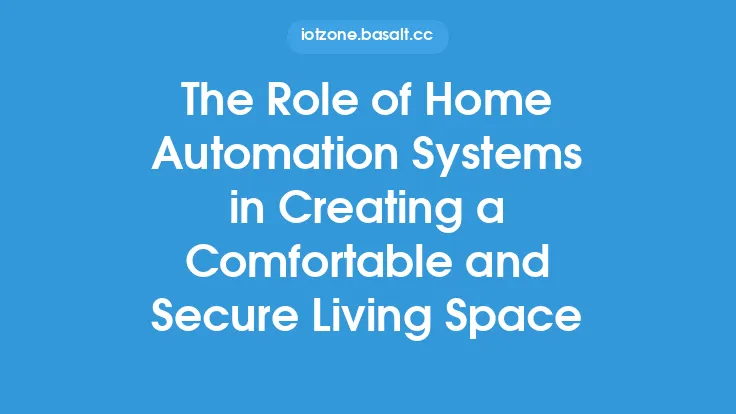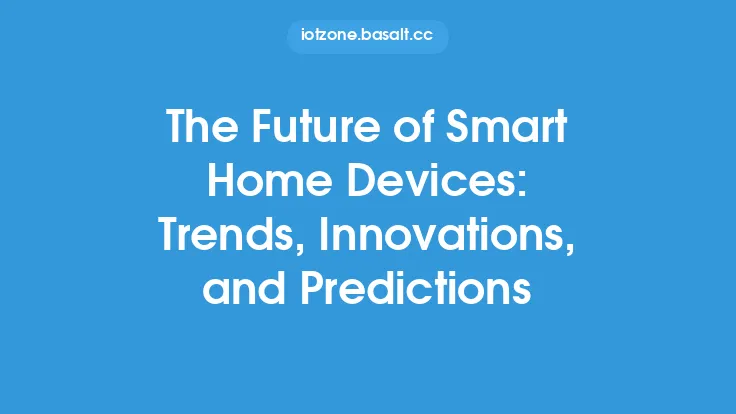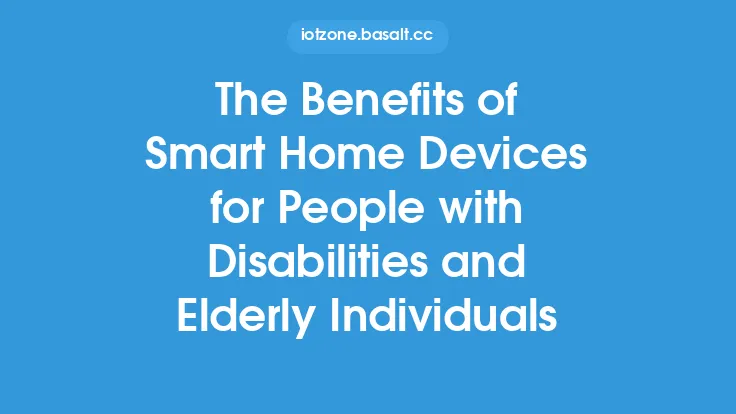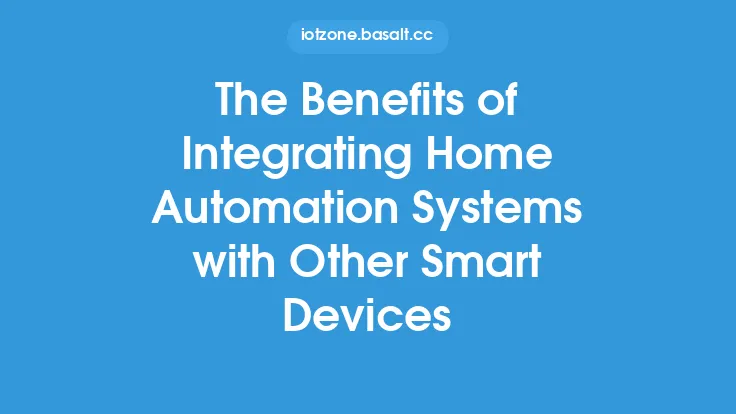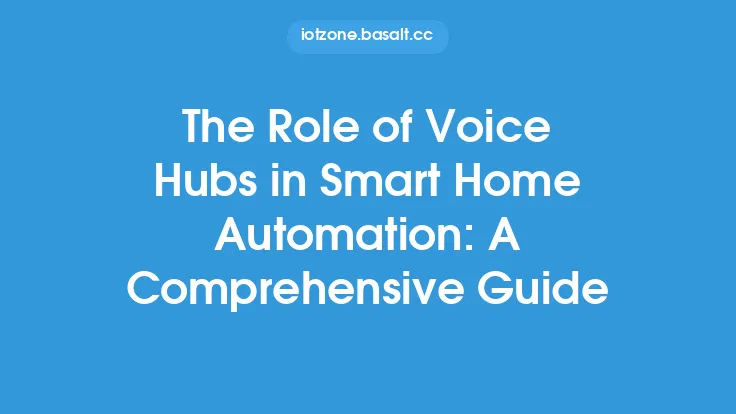The concept of home entertainment and leisure has undergone a significant transformation with the advent of smart home devices. These devices have revolutionized the way we experience entertainment, making it more immersive, convenient, and personalized. Smart home devices have enabled homeowners to create a seamless and integrated entertainment system that can be controlled and accessed from anywhere in the home. In this article, we will delve into the role of smart home devices in enhancing home entertainment and leisure, exploring the various technologies, devices, and features that make up this ecosystem.
Introduction to Smart Home Entertainment Systems
A smart home entertainment system typically consists of a network of devices and sensors that work together to provide an immersive and interactive experience. These devices can include smart TVs, soundbars, speakers, gaming consoles, and streaming devices, among others. The system is often controlled by a central hub or interface, such as a smartphone app or voice assistant, which allows users to access and manage their entertainment content from a single platform. Smart home entertainment systems can be customized to meet the specific needs and preferences of individual homeowners, providing a tailored experience that enhances their leisure time.
Key Components of Smart Home Entertainment Systems
Several key components make up a smart home entertainment system. These include:
- Smart TVs: These are internet-connected TVs that can stream content from various sources, including online platforms and local devices.
- Soundbars and Speakers: These devices provide high-quality audio and can be connected to smart TVs and other devices to create a immersive audio experience.
- Gaming Consoles: These devices provide access to a wide range of games and can be connected to smart TVs and other devices to create a seamless gaming experience.
- Streaming Devices: These devices, such as Roku and Chromecast, provide access to online content and can be controlled using a smartphone app or voice assistant.
- Voice Assistants: These devices, such as Amazon Alexa and Google Assistant, provide a convenient and hands-free way to control smart home entertainment systems.
Technologies Used in Smart Home Entertainment Systems
Several technologies are used in smart home entertainment systems to provide a seamless and integrated experience. These include:
- Wi-Fi and Bluetooth: These wireless technologies enable devices to communicate with each other and provide a stable and reliable connection.
- HDMI: This technology enables devices to transmit high-quality audio and video signals to smart TVs and other devices.
- IP Control: This technology enables devices to be controlled remotely using a smartphone app or voice assistant.
- Artificial Intelligence (AI) and Machine Learning (ML): These technologies enable smart home entertainment systems to learn user preferences and provide personalized recommendations.
Benefits of Smart Home Entertainment Systems
Smart home entertainment systems provide several benefits to homeowners, including:
- Convenience: Smart home entertainment systems provide a convenient and easy-to-use interface that allows users to access and manage their entertainment content from a single platform.
- Personalization: Smart home entertainment systems can be customized to meet the specific needs and preferences of individual homeowners, providing a tailored experience that enhances their leisure time.
- Immersion: Smart home entertainment systems provide an immersive and interactive experience that enhances the overall entertainment experience.
- Energy Efficiency: Smart home entertainment systems can be designed to be energy efficient, providing a cost-effective and environmentally friendly solution.
Integration with Other Smart Home Devices
Smart home entertainment systems can be integrated with other smart home devices to provide a seamless and connected experience. These devices can include:
- Smart Lighting: Smart lighting systems can be integrated with smart home entertainment systems to provide a immersive and interactive experience.
- Smart Thermostats: Smart thermostats can be integrated with smart home entertainment systems to provide a comfortable and energy-efficient environment.
- Smart Security Systems: Smart security systems can be integrated with smart home entertainment systems to provide a secure and safe environment.
Security and Privacy Considerations
Smart home entertainment systems can pose security and privacy risks if not properly secured. These risks can include:
- Hacking: Smart home entertainment systems can be vulnerable to hacking, which can compromise user data and provide unauthorized access to the system.
- Data Breaches: Smart home entertainment systems can be vulnerable to data breaches, which can compromise user data and provide unauthorized access to the system.
- Surveillance: Smart home entertainment systems can be used for surveillance, which can compromise user privacy and provide unauthorized access to the system.
Best Practices for Implementing Smart Home Entertainment Systems
To ensure a seamless and secure experience, homeowners should follow best practices when implementing smart home entertainment systems. These practices can include:
- Conducting thorough research and planning before implementing a smart home entertainment system.
- Ensuring that all devices are compatible and can be integrated with each other.
- Implementing robust security measures, such as encryption and firewalls, to protect the system from hacking and data breaches.
- Regularly updating and patching devices to ensure that they remain secure and up-to-date.
Conclusion
Smart home devices have revolutionized the way we experience entertainment, making it more immersive, convenient, and personalized. Smart home entertainment systems provide a seamless and integrated experience that can be customized to meet the specific needs and preferences of individual homeowners. By understanding the key components, technologies, and benefits of smart home entertainment systems, homeowners can create a tailored experience that enhances their leisure time. However, it is essential to consider security and privacy risks and follow best practices to ensure a secure and seamless experience. As smart home technology continues to evolve, we can expect to see even more innovative and integrated solutions that enhance our home entertainment and leisure experiences.
